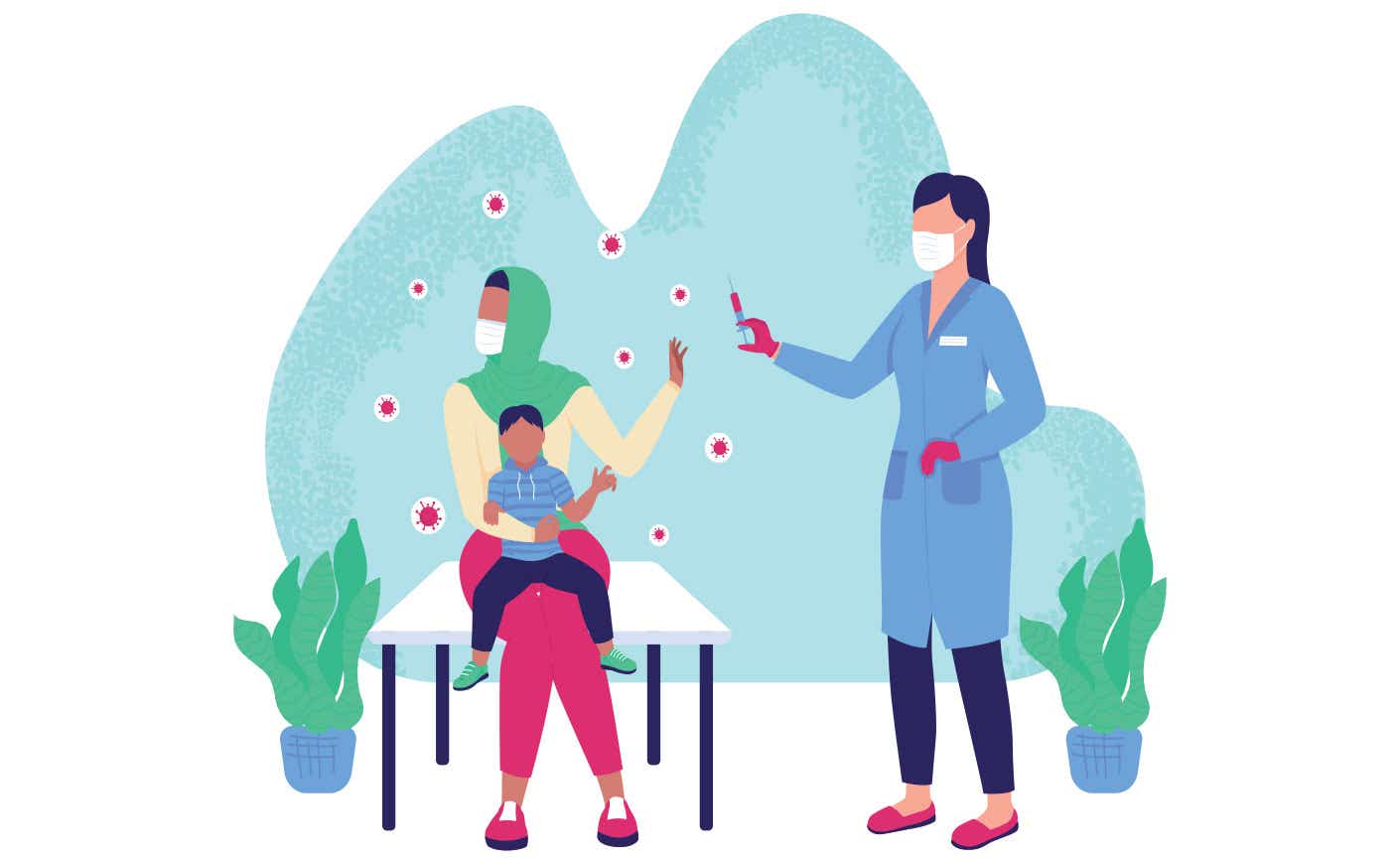Conversations around the coronavirus and the vaccine can be awkward with those who may not hold the same views as you — especially this time of year when we're spending more time together for the holidays. But it doesn't have to be that way. Infectious disease expert Julie Parsonnet, MD, and philosophy professor Maya Goldenberg, Ph.D., both specialize in the subject of vaccine hesitancy and believe you can broach this sensitive topic with friends and loved ones.
While no single approach is going to convince everyone, they share some strategies with us (you can also find the CDC’s own recommendations here). The good news is these conversations can actually do some good, especially given that vaccine hesitancy is now on the decline.
In fact, about a third of people who were hesitant about getting a COVID-19 vaccine last year are now more willing to get vaccinated, according to a study published in the Journal of the American Medical Association. But there are certainly still a number of barriers standing in the way, including maybe even just a lack of information or a lack of trust. Both experts believe that this is why forming a relationship is key to helping the rest of the population get the shot they need to prevent them from getting the disease that has now caused more than 730,000 deaths.
What to Say to Anti-Vaxxers or Vaccine Hesitant Friends and Family
Prepare for a potentially emotionally-charged conversation
Try not to lecture your family or friends about the vaccine. Dr. Parsonnet said some people have a tendency to rely more on their intuition and emotions when making choices, so trying to rationalize and explain “can’t overcome what people feel in their hearts.”
“I love the book Thinking Fast and Slow by Nobel Laureate and psychologist, Daniel Kahneman,” she told us. “He talks about how human people think.”
Start from a place of understanding and listen
Both Dr. Parsonnet and Dr. Goldenberg agreed that the most important thing you can do for a friend or loved one who has some vaccine concerns is to hear them out and let them voice their concerns.
“The worst thing we can do is dismiss people's concerns,” Dr. Goldenberg told us.
Similarly, Dr. Parsonnet advised acknowledging someone’s worries and then trying to probe and find out what would make them less concerned. Sometimes this might lead to pieces of information they might not have heard of or thought of before, according to Dr. Goldenberg.
“A lot of times people send wild stories and what it comes down to is, there's just a piece of information they're missing and you might be able to help them find it,” she said.
Acknowledge some of the uncertainties surrounding the vaccine
Sometimes the best conversations are the most transparent ones...even when you don’t have all of the answers. Dr. Goldenberg believes this is especially true when talking to vaccine-hesitant parents. Late last month, the Food and Drug Administration authorized the emergency use of the shot to kids ages 5 to 11.
Despite this official backing, about half of parents remain skeptical about the vaccine's safety and effectiveness, according to an ABC News/Washington Post poll. While this skepticism appears to be widespread, it's most pronounced among Republicans and conservatives.
“They're struggling to work through the uncertainty and the gaps in knowledge like everyone else and trying to make the best choice that they can,” Dr. Goldenberg said.
On the bright side, as a friend or loved one, you're in a better position to help someone who may have fears or concerns that are preventing them from getting the vaccine.
“The best way to modify people’s opinions is to develop a personal relationship with them that is relatively deep and based on respect,” Dr. Parsonnet said. “Hard, hard, hard to do during an epidemic.”









